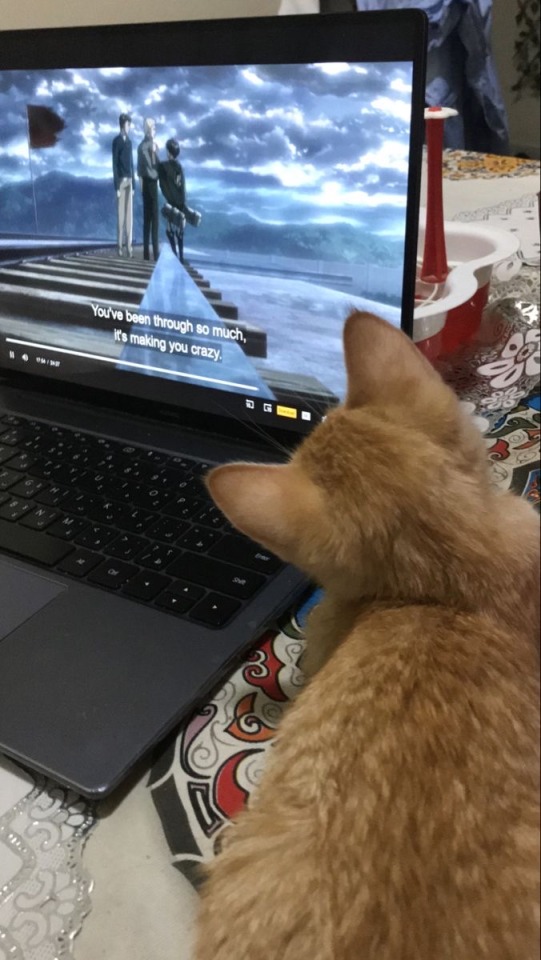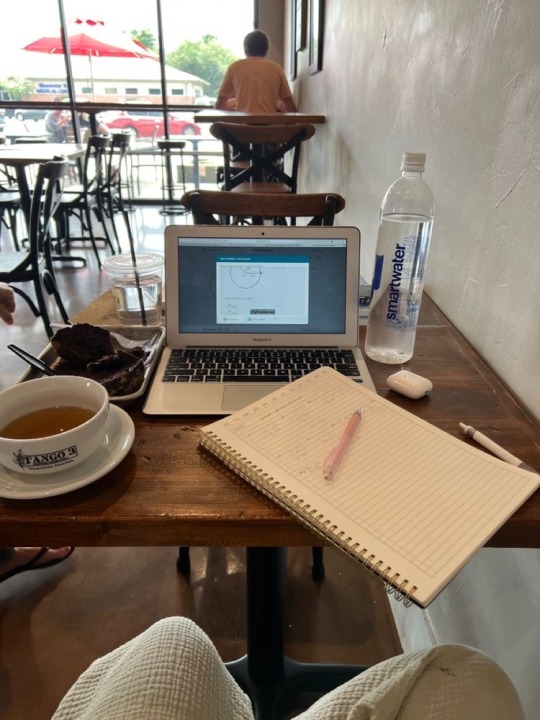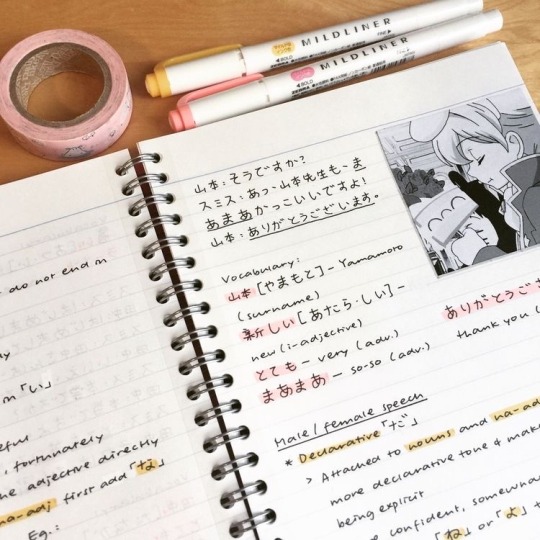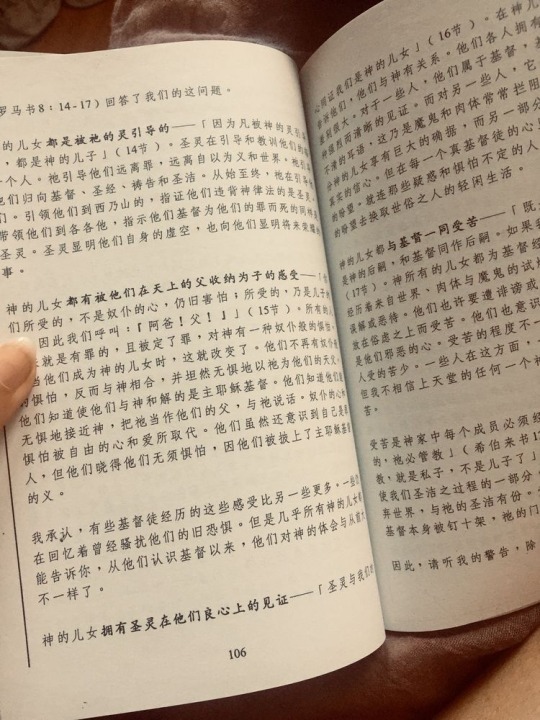Ana | 22 | USA Current: Swedish | Japanese | Russian | Korean | French | Mandarin Future: AR | ASL | BG | Cherokee | HR | ET | FI | IT | EI | Hawaiian | HI | HU | IS | ID | Kabadian | LT | MN | PL | PT | PA | RO | GD | SK | SW | TH | UK | VI | CY On Hold: Czech | German | Irish | Norwegian | Latin | Spanish
Don't wanna be here? Send us removal request.
Text
Body Parts in French
Please note there are NSFW terms in this vocab list.
english | french
body | corps (m.)
head | tête (f.)
face | visage (m.) hair | cheveux (m.pl.) eyebrow | sourcil (m.) (often plural: sourcils) forehead | front (m.) eyes | yeux (m.pl.) (singular: œil (m.)) eyelash | cil (m.) (often plural: cils) nose | nez (m.) nostril | narine (f.) mouth | bouche (f.) lip | lèvre (f.) tooth | dent (f.) (often plural: dents) gum | gencive (f.) (often plural: gencives) tongue | langue (f.) jaw | mâchoire (f.) chin | menton (m.) ear | oreille (f.) cheek | joue (f.) (often plural: joues)
neck | cou (m.)
throat | gorge (f.) Adam's apple | pomme d'Adam (f.) shoulder | épaule (f.)
arm | bras (m.)
armpit | aisselle (f.) forearm | avant-bras (m.) elbow | coude (m.) wrist | poignet (m.) hand | main (f.) knuckle | articulation (du doigt) (f.) (often plural: articulations) finger | doigt (m.) fingernail | ongle (m.) (often plural: ongles) thumb | pouce (m.) pointer/index finger | index (m.) middle finger | majeur (m.) ring finger | annulaire (m.) pinky finger | auriculaire (m.)
torso | torse (m.)
collarbone | clavicule (f.) chest | poitrine (f.) nipple | mamelon (m.) breast | sein (m.) (often plural: seins) belly button/navel | nombril (m.) / ombilic (m.) back | dos (m.) spine | colonne vertébrale (f.) waist | taille (f.)
hip | hanche (f.)
pelvis | pelvis (m.) penis | pénis (m.) testicle | testicule (m.) balls | couilles (f.pl.) vagina | vagin (m.) bladder | vessie (f.) butt | derrière (m.) buttocks | fesses (f.pl.) anus | anus (m.)
leg | jambe (f.)
thigh | cuisse (f.) knee | genou (m.) calf | mollet (m.)
foot | pied (m.)
ankle | cheville (f.) heel | talon (m.) toe | doigt de pied (m.) (plural: doigts de pied) toenail | ongle de pied (m.) (often plural: ongles de pied)
Please let me know if there are any mistakes or better translations!
337 notes
·
View notes
Text
A list of German Youtubers (for immersion)!
La Polcevita: German trash TV commentary. Perfect if you'd like to watch German trash TV but without paying or actually watching each episode full-length!
Annikazion: another German trash TV commentator. She has a specific focus on the queer show "Princess Charming".
STRG_F: journalistic mini documentaries about varying topics such as political scandals, the ne0 n4zi scene, etc.
Marvyn Magnificent: makeup related videos, lifestyle, fashion
Oskar Artem: makeup, casual stuff with friends
Joana June: book content, lifestyle, chill vlogs
Julien Bam: high quality storytelling shortfilm (?) video series - or at least that's my attempt at describing his content. It's really incredible what wonderful stuff him and his crew have been putting out for the last years. As I said, it's hard to explain so I recommend you just look into it yourself!
Jucktmichnicht: second channel of Julien Bam where he posts insights into the production of the main channel videos, stuff with friends, reactions, gameplay
Jasmin Gnu: updates and insights on/in her fitness journey, challenges with friends, honest talks on the beauty industry, social criticism. I really admire her for her honesty & will to speak about beauty standards etc. so openly!
Renzo: (tiktok) reactions, challenges/casual stuff with friends, stream highlights
Tonia: Toni and Nia, though now unfortunately inactive, used to make talk videos with friends and guests about varying topics, often things which are usually not so openly discussed. Super fun and interesting to listen to, I highly recommend!
Taddl: a friend of Tonia who does mainly gaming on his channel: He's also a rapper/musician so check that out as well if you want!
Julia Beautx: challenges with friends, also makes music
Coldmirror: I believe this is actually one of the first gen German Youtubers, and has thus been around for as long as I can think. She does animations (often of her own OCs but also of popular characters like Harry Potter & co.), voice acting, and parodies.
Wer stiehlt mir die Show ("Who will steal my show?"): Originally a TV show, however you can also find it uploaded on Youtube! It's in the format of a quiz show where the winning contestant gets to host the next season of the show. Funny, brilliant, show-stopping, never been done before.... doesn't take itself seriously at all, very lovable.
Space frogs: social criticism in the form of commentary, skits and other similar formats
Dagi Bee: lifestyle, vlogs
Anni The Duck: cosplay, anime related content, vlogs, stuff with friends.
I hope this list will be a bit helpful for you to find some German content creators that fit your taste! Good luck with your studies and don't forget that progress isn't linear! If you have trouble understanding these creators don't worry, there will come a time where you'll have improved and can listen to native speakers with ease! <3
637 notes
·
View notes
Text
Ways of saying "go to hell!" or "go fuck yourself!" in Catalan
Tired of someone's bullshit? Can't stand them anymore? Here's some things to tell them!
Tell them to go...
a escampar la boira: to spread the mist
a cagar: to take a shit
a cagar a la via: to take a shit on the railroad tracks
a pastar fang: to knead mud
a fer la mà: to do the hand
a fregir raves: to fry radishes
a fregir espàrrecs: to fry asparagus
a parir panteres: to give birth to panthers
a prendre pel cul: to take in the ass
a prendre pel sac: to take in the sack
a la merda: to the shit
a fer punyetes: to do lace cuffs
a fer piles: to pile up stuff
a rodar: to roll down
a Can Pistraus (or Pistracs): to Pistraus House ("to go to Pistraus House" can also be an euphemism to mean "to die")
al carall: to heck
a dida: to the wet nurse
al botavant: to the boarding pike
al diable: to the devil
a passeig: to take a walk (it's ruder than it sounds)
al cony de ta mare: to your mother's cunt
a malguany: to (be) damn
a la quinta forca: to the 5th gallow (it's an expression that means "very far away")
223 notes
·
View notes
Text
~ん坊 (a person who...)
attached to verbs or nouns to indicate a person who does an action/possesses a certain quality
※Also commonly written as ~んぼ.
甘えん坊 - spoiled child; person who likes to be pampered
けちん坊 - cheapskate
食いしん坊 - glutton
忘れん坊 - forgetful person
通せん坊 - standing in the way, blocking the way
慌てん坊 - flustered/hasty person
暴れん坊 - rowdy person
真似しん坊 - copycat
隠れん坊 - hide-and-seek
聞かん坊 - naughty/unruly child
立ちん坊 - standing without doing anything; beggar; prostitute; day laborer standing and waiting for a job etc.
怒りん坊 - short-tempered/irritable person
去られん坊 - divorcing woman
卑しん坊 - greedy person
吝ん坊 - miser
寂しん坊 - lonely person
裸ん坊 - naked person
悔しん坊 - spiteful person
威張りん坊 - boaster; bossy person
The words may be written fully in hiragana, including the preceding kanji.
696 notes
·
View notes
Text
Phrasebook for Ukrainian refugees!
Help needed to make a phrasebook for Ukrainian refugees! If you speak • Polish (Польска) 🇵🇱 • Romanian (Румунська) 🇲🇩🇷🇴 • Hungarian (Угорська) 🇭🇺 • Slovak (Словацька) 🇸🇰 • German (Німецька) 🇩🇪🇦🇹🇨🇭🇱🇮 • Bulgarian (Болгарська) 🇧🇬 Please consider participating and adding the phrases in your language!
🇺🇦 The link to the phrasebook 🇺🇦
Please reblog this to spread the word!
4K notes
·
View notes
Text

🌸 日本語 Greetings
こんにちは konnichiwa – Hello formal
もしもし moshimoshi– Hello formal
Used when answering the phone.
やあ yā – Hey informal
ヤッホー ya hō – Hello informal
Used to greet children or close friends.
よぉ yō – Yo informal (“masc”)
おす/おっす osu/ossu – Hey informal
Used to get someones attention.
おーい ōi – Hey informal (“masc”)
Used to get someones attention.
ただいま tadaima – I’m home informal
ようこ�� yōkoso - Welcome informal
A common phrase to say after someone arrives after traveling.
いらっしゃいませ irasshai mase– Welcome formal
This is a common phrase you’ll hear when entering convenience stores or restaurants.
(毎度)いらっしゃいませ (maido) irasshaimase – Welcome formal
This version means “Every time, welcome” and is used by many businesses, especially hotels and spas.
おはよう(ございます) ohayo (gozaimasu) – Good morning in(formal)
こんばんわ konbanwa – Good evening formal
はじめまして hajime mashite – It’s nice to meet you formal
おあいできて こうえいです o ai dekite kōeidesu – It’s an honor to meet you very formal
Used when first meeting a superior, like a professor or employer.
だいじょうぶ (ですか) daijōbu (desuka) – Are you alright? in(formal)
お(元気)ですか o (genki) desuka- Are you okay? (in)formal
This is often translated as “How are you?” but that’s not quite right. You would typically ask this if it’s to someone you haven’t seen in a long time or if someone seems upset, concerned or pensive.
げんき だった genki data – What’s good? informal
だった is a past tense marker for nouns and な-adjectives. It tells us that the word it’s attached to is relevant to the past, similar to “was” in English.
なんか あった nani ka atta – What’s happening? What’s up? informal
どうよ dōyo – How’s it going? informal
Although informal, it’s appropriate for most social situations when following another greeting.
最近どう saikin dō – What’s up? informal
Also implies the phrase “How have you been?”
お(久しぶり)です o (hisashi) buridesu– Long time no see (in)formal
This phrase is the equivalent of “Long time no see” or “It’s been a while” in English.
(大丈夫)ですか (daijōbu) desuka – Are you alright? (in)formal
Usually asked after someones been hurt or embarrassed.
657 notes
·
View notes
Text
How to learn a language the fun (and easy) way:
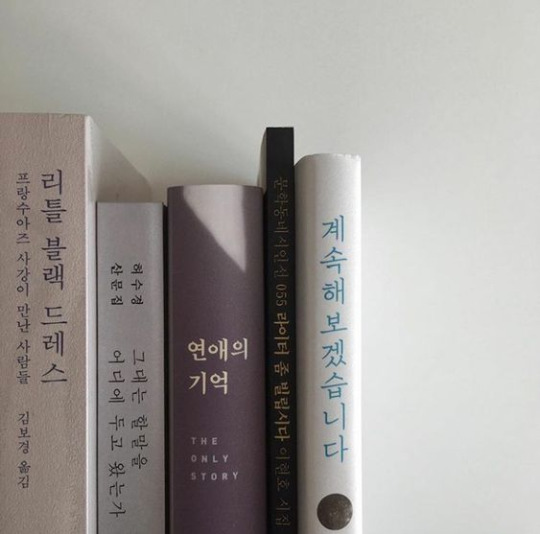

1 - Watch native films/dramas
This is not only fun, but will also help your ears adjust to the speed and tones of native speakers. You will start to differentiate individual words and sounds. This is not a voice over or language teacher speaking - these are natives who speak rapid-fire, and with lots of slang thrown in. You'll also learn about the country's culture, etiquette rules and general way of life.
Matt vs Japan (YouTube) learnt Japanese through watching anime. You can also learn through native resources like manga. And this is how babies learn naturally - through an endless stream of language input. Eventually they recognise word, intonation and grammar patterns.
For free Korean/Japanese/Chinese dramas check out Viki, or you can find a variety of languages on Netflix, or even YouTube (good for Russian ones!)
2 - Find a translated version of books/films
If you know a book series by heart, find the translated version and go through them slowly. Since you already know the plot, you'll associate new words with their meanings much faster. You can also do this with films you've watched repeatedly, like the Disney classics.
3 - Chat with natives
Use apps like HelloTalk, Tandem or Hilokal to chat (for free!) with native speakers around the world. Honestly, this is the fastest way to learn, especially because they use everyday expressions/slang. It's also the most fun way because you're essentially just making foreign friends.
4 - Browse the internet in your TL
YouTube, twitter, Tumblr, forums, whatever. Google a recipe in Spanish. Check the news in German. Create a YouTube account specifically for Arabic. You can also make Spotify playlists in your TL, and listen to them instead of your usual native ones.
5 - Create content
Compose a song
Keep a diary
Start a blog
Create a YouTube channel
Write a passionate essay
Write a short story
...in your target language.
6 - Latch onto something cultural you love
Fall in love with Russian literature and start wading your way through Crime and Punishment. Get obsessed with Hindi Bollywood movies, or Italian opera, or Japanese anime/manga. Research into your TL country's history in that foreign language. Binge Korean dramas or kpop idol interviews. Anything, as long as you're passionate about it.
Hope that helps, and let me know if you have any other ideas :)
2K notes
·
View notes
Text
funny ways to say “in the middle of nowhere”
Collected funny ones under this post + contributions to this one (my selection). Most involve ass(holes), have god/the devil, (nonsense) names of villages…
🇩🇪German: in the ass of the world/ the pasture- am Arsch der Welt/der Weide; where Fox and Hare bid each other good night - Wo sich Fuchs und Hase Gute Nacht sagen (old-fashioned), where the dead dog lays - Da liegt der tote Hund, in Buxtehude/ (Kuh)kaff, in der Pampa, in Timbuktu
🇮🇹Italian: in assland - in culonia/culandia, in the wolves’ ass - in culo ai lupi, in the ass of the word - in culo al mondo; 🇫🇷 French in the asshole of the world - dans le trou du cul du monde
🇨🇿Czech: Where foxes bid good night to one another - Kde si lišky dávají dobrou noc
🇩🇰Danish: where the crows turn around - Hvor kragerne vender on Lars diarrheas field/on the field of Lars Shitpants - På lars tyndskids mark
🇳🇴Norwegian: far damn from violence - langt pokker i vold, “huttaheiti” (gibberish)
��🇪Swedish: out (there) in the spinach - ute i spenaten,“tjotaheiti” (see above, maybe originally from Tahiti)
🇪🇸in Spain: in the fifth hell/pine tree - En el quinto infierno/pino, where Christ lost the sandal/hat/lighter - Donde Cristo perdió la alpargata/gorra/mechero;
🇲🇽 Mexico: Where the devil farts - Donde el diablo se echa un pedo, and sometimes someone answers: “Y nadie lo escucha” And no one hears
🇹🇼in Taiwan: where birds don’t lay eggs and dogs don’t shit - 鳥不生蛋狗不拉屎的地方
🇵🇱Polish - where crows turn around - Gdzie wrony zawracają, where dogs bark from their ass - gdzie psy dupami szczekają 🐶; Where the devil says goodnight - Gdzie diabeł mówi dobranoc, where (black) pepper grows - gdzie pieprz rośnie, (mostly in the context of running as far away as possible or chasing someone away)
🇦🇺Australia: woop woop or “in the middle of woop woop’ 🇳🇿 NZ: wop wops
🇻🇳Vietnamese: holy forests, poisonous waters - rừng thiêng nước độc / where mountain passes are windy/cloudy and winds swirl in vortexes - đèo heo hút gió or đèo mây hút gió (rarely used)
🇨🇦🇫🇷 Québéc: Saint clin clin des meuhs meuhs (actual village name…)
🇸🇦 Arabic (Saudi dialect): in the castle of wadren في مقلاع وادرين (an old castle in the middle of desert)
🇮🇱 in Israel: Israel: at the end of the world, take a turn left - סוף העולם שמאלה
🇫🇮Finnish: behind God’s back - jumalan selän takana, in the devil’s ass - helvetin perseessä;
🇬🇷 Greek: at the devil’s horn - Στου διαόλου το κέρατο;
🇧🇬 Bulgarian: on the ass of geography - На гъза на географията
🇮🇸 Icelandic Out in an asshole - úti í rassgati;
🇧🇷 in Brazil: in cock’s house - na casa do caralho;
🇦🇷 in Argentina: in the pussy of the parrot- en la concha de la lora 🦜;
🇪🇪 Estonian: in the bear’s ass - karuperses 🐻
🇺🇸 USA: bumfuck Egypt
🇧🇪 in Belgium (Dutch): in a farmer’s asscrack - in een boerengat
🇺🇦 Ukrainian: in the devil’s swamps в чорта на кулічках, where the crow won’t carry bones куди ворон кісток не заносить
3K notes
·
View notes
Text
German idioms with colours 🎨🖌️
der Schwarzmaler -> "the black-painter" (i.e. someone who paints something black) = someone who always looks on the negative side of things; a pessimist
ein Schuss ins Blaue; ins Blaue raten/schießen -> "a shot into the blue" / "to guess/shoot into the blue" = a shot in the dark; to make a wild guess about something (example: "Ich schieße mal ins Blaue und rate, dass dein Date nicht gut gelaufen ist.")
rotsehen -> "to see red" = to see red; to get angry about something (example: "Wenn jemand über andere Leute lästert, sehe ich rot.")
grünes Licht geben -> "to give green light" = to give the go-ahead for something (example: "Mein Chef hat mir grünes Licht für das Projekt gegeben.")
blau sein -> "to be blue" = to be drunk (example: "Er hat viel zu viel getrunken. Er ist total blau.")
blaumachen -> "to make blue" = to skive off / skip something, e.g. school or work (example: "Mein Kumpel und ich haben heute blaugemacht und waren im Kino.")
etwas durch die rosarote Brille sehen -> "to see something through pink-red glasses" = to see the world in a (delusionally and naively) positive way (example: "Sie ist frisch verliebt und sieht die Welt durch die rosarote Brille.")
das Gelbe vom Ei -> "the yellow of the egg" = the best/most favorable part of something (example: "Ich war gestern auf einem tollen Konzert. Aber das Gelbe vom Ei war, als mein Lieblingssänger mir ein Autogramm gegeben hat!")
schwarz auf weiß -> "black on white" = undeniable, guaranteed (example: "Dein gebrochenes Bein zeigt schwarz auf weiß, dass du nicht skateboarden kannst.")
eine weiße Weste haben -> "to have a white waistcoat / vest" = to be innocent (example: "Ich habe mich geirrt. Sie war es nicht; sie hat eine weiße Weste.")
grün hinter den Ohren -> "green behind the ears" = to be young and inexperienced (often used in a negative way) (example: "Du bist viel zu jung für so viel Verantwortung. Du bist ja noch grün hinter den Ohren!")
ein blaues Wunder erleben -> "to experience a blue miracle" = to be in for a nasty surprise; to get the shock of one's life (sometimes used as a threat by parents) (example: "Wenn du nicht sofort dein Zimmer aufräumst wirst du ein blaues Wunder erleben!")
Lmk if you have these idioms in your language as well!
326 notes
·
View notes
Text
Korean vocablist #4
A list of useful verbs and adjectives in Korean!
KO / EN / SV
계속하다 / To continue / Att fortsätta
긴장하다 / To be nervous / Att vara nervös
혼란스럽다 / To be confused / Att vara förvirrad
혼란스럽게 만들다 / To make someone confused / Att göra någon förvirrad
일어나다 / To wake up / Att vakna
잊다 / To forget / Att glömma
기억하다 / To remember / Att komma ihåg
가능하다 / To be possible / Att vara möjlig
불가능하다 / To be impossible / Att vara omöjlig
집중하다 / To concentrate / Att koncentrera sig
진지하다 / To be serious / Att vara seriös
Bonus:
맞춰보세요! / Guess! / Gissa!
— “석진 씨, 이거 뭐예요?”
— “맞춰보세요!”
34 notes
·
View notes
Text
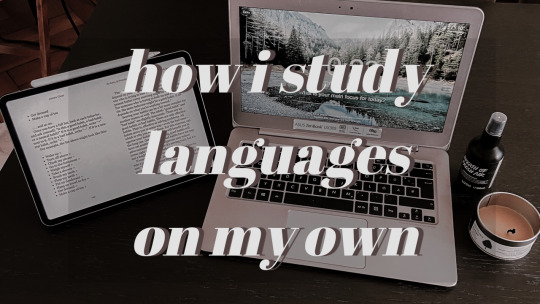
click here for my new video! i’m sharing some language learning study tips that i use to self-study languages at home, featuring apps, websites, podcasts and books that i really enjoy using!! hopefully this will be helpful and inspire some of you :) if you enjoy my videos, please leave a like/sub, that would be so appreciated!!
11K notes
·
View notes
Note
What is the best/most effective way to learn new vocabulary? How do you learn new vocab?
As far as I know, the most effective way to learn vocabulary, that science has discovered so far, is spaced repetition.
Using spaced repetition means you take a Korean word or sentence, learn it for the first time, then let short amount of time pass and review it. Then:
if you know the answer you increase the amount of time before you review it again
if you don’t know the answer you shorten the amount of time before you review it again
This way you don’t waste time on Korean vocabulary you know well, and instead review vocabulary you started to forget. It prevents the word from disappearing from your memory and you having to reforge brain connections. Instead, you keep refreshing already existing connections until they become permanent.
You can do this by yourself with paper flashcards, creating piles and keeping track of time - which is way too complicated for my taste because there is software today that does all this for you.
The most popular ones are Anki and Memrise. They have built-in algorithms for spaced repetition.
I use Memrise.
My process of learning Korean vocabulary is basically this:
get a Korean word I want to learn (I have several self-created courses, one for vocabulary from my Korean textbook, one for a webtoon I am reading, one for honorific versions of words I come across, one for random words I find interesting etc.)
get the definition, Hanja (if it exists), and pronunciation (if it’s complicated) from Naver dictionary
put all of that into Memrise
if the word is abstract or difficult to remember, also add sample sentences. (This helps me see the word more times, and also helps me learn context in which the word is used.)
learn, review, review, review, learn, review, learn, review, review….
This is what my Memrise courses look like
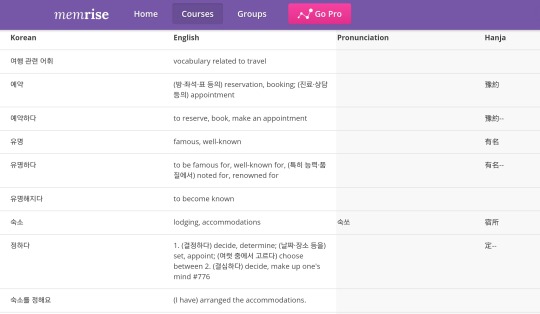
Bonus Vocabulary Learning Tips:
Don’t expect vocabulary learning to be quick and easy. To speak a language you will need to know thousands and thousands of words. It’s not unusual for this to take several years (or longer).
Make sure to learn an even mix of vocabulary from sources that interest you and vocabulary you have to learn. If it’s just beginner vocabulary from textbooks or courses you might get bored. Do you like Korean history? Kpop? Kdrama? Korean movies? Korean games? Makes sure to include that vocabulary as well. It will help keep you reminded why you’re learning Korean and make studying more exciting.
Courses I create myself are way more effective than using premade courses from other people. I learn while creating them, I know why each word is included, and I know the context for each word.
Context is even more important when learning vocabulary for language such as Korean, which is so different (unless you speak Japanese). For example, no use knowing the word for “sorry” in Korean if you don’t know “I am sorry” is not the way to show empathy for someone’s misfortune.
Don’t learn words in logical groups. This one may sound counterintuitive, but I read research that said if you learn, for example, all the synonyms for “cold”, or all vocabulary related to one topic such as weather, that ayou will learn slower, mix up words more often, and forget quicker.
Try choosing shorter sentences if you’re adding sample sentences, especially into apps that require typing like Memrise. One small typo is enough to make you retype that sentence over and over again in short intervals of time, and it gets old real soon.
Learn managable amount of words per day. It might feel exciting, when you have more time, to quickly increase the number of Korean words you know but you will also forget them quickly which means you will have to review them often. When you suddenly have hundreds or even thousand of words to review and you’re busy with life it’s easy to feel overwhelmed and quit.
In short, whatever you do, make sure to keep it as manageable and as fun as possible. The most effective way to learn vocabulary is to keep learning it.
688 notes
·
View notes
Text
Shopping Vocabulary
Verbs: infinitive - present stem
to ask- پرسیدن - پرس (porseedan- pors)
to like- دوست داشتن- دوست دار (doost dāshtan- dār)
to put/allow- گذاشتن -گذار (gozāshtan- gozār)
to open- باز کردن - باز کن (bāz kardan- kon)
to want- خواشتن - خواه (khāstan- khāh)
to can/be able to- توانشتن - توان (tavānestan- tavān)
to buy- خریدن - خر (kharidan- khar)
to wait- صبر کردن - صبر کن (sabr kardan- kon)
must/should- بای (bāyad)
to find- پیدا کردن- کن (peydā kardan- kon)
to give a discount- تخفیفه دادن- ده (takhfifeh dādan- dah)
to get a discount- تخفیفه گرفتن - گیر (takhfifeh gereftan- geer)
to haggle- چانه زدن- زن (chāneh zadan- zan)
to display- چیدن - چین (cheedan- cheen)
to pay- پرداختن- پرداز (pardākhatan- pardāz)
to take- بردن - بر (bordan- bar)
Nouns
sir- جناب (jenāb)
price- قیمت (gheymat)
co-worker- همکار (hamkār)
client/customer- مشتری (moshtari)
store- فروشگاه (forooshgāh)
taste- سلیقه (saligheh)
rug- فرش (farsh)
bookstore- کتاب فروش(ketāb foroosh)
moment- لحظه (lahzeh)
student discount- تجفیفه دانشجویی (takhfifeh daneshjooyee)
silk- ابریشم (abreesham)
Toman- تومان (tomān)
Adjectives
expensive- گران (gerān)
cheap- ارزان (arzān)
lightweight- سبک (sabok)
heavy- سنگین (sangeen)
all kinds- همه نوع (hameh no?)
Expressions
it should/may not be- نباشد (nabāshad)
i should/may take it- ببرامش (bebaramash)
ok/well- خب (khob)
that/which/who/when/whose- که (keh)
ok[response]- باشد (bāshad)
may it bring you luck- خیرش را ببینید (kheerash rā bebeeneed)
congratulations!- مبارک است (mobārak ast)
for example- مثلا (masalān)
i should/may count- حساب کنم (hesām konam)
sell it for less so that we become customers- ارزان بدهید مشتری بشویم (arzān bedaheed moshtari beshaveem)
Source
58 notes
·
View notes
Text
Harry Potter in French, part 1
I’m so going to rewatch each HP movie on Netflix and AIN’T NOBODY GONNA STOP ME
Aaaanyways, in the meantime, here’s a vocab list for all of you Potterheads!! I’ll probs do a part 2 ;)
Poudlard = Hogwarts
Gryffondor = Gryffindor
Serpentard = Slytherin
Serdaigle = Ravenclaw
Poufsouffle = Hufflepuff
La Grande Salle = the Great Hall
Le Choixpeau magique = the Sorting Hat
Pré-au-Lard = Hogsmeade
La Cabane hurlante = the Shrieking Shack
Le Saule cogneur = the Whomping Willow
La Salle sur Demande = the Room of Requirement
La Chambre des Secrets = the Chamber of Secrets
La Défense contre les forces du Mal = Defence against the Dark Arts
Un Moldu = a Muggle
Un Mangemort = a Death Eater
Un Détraqueur = a Dementor
Les Reliques de la Mort = the Deathly Hallows
La Baguette de Sureau = the Elder Wand
La Pierre de Résurrection = the Resurrection Stone
La Cape d'Invisibilité = the Cloak of Invisibility
Le Basilic = the Basilisk
Un Horcruxe = a Horcrux
Le Fourchelang = Parseltongue
1K notes
·
View notes

